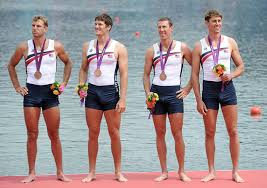erect
英 [ɪˈrekt]
美 [ɪˈrekt]
- vt. 使竖立;建造;安装
- adj. 竖立的;笔直的;因性刺激而勃起的
- vi. 直立;勃起
使用频率:

记忆方法
将“erect”分解为“ere”和“ect”。想象一个人(ere)在站立(ect,联想到“ erect”),这样就能记住这个词的意思是“竖直的”或“立起的”。
以上内容由AI生成, 仅供参考和借鉴
中文词源
erect 竖直的,垂直的
e-, 向外。-rect, 竖直,词源同right, correct.
英语词源
- erect
-
erect: [14] Erect was borrowed from Latin ērectus, the past participle of ērigere ‘raise up, set up’. This was a compound verb formed from the prefix ex- ‘out, up’ and regere ‘keep straight, set, direct’ (source of English regent, region, etc). The use of the derivative erection [15] for the enlargement of the penis dates from the 16th century.
=> correct, direct, regent, region - erect (adj.)
- late 14c., "upright, not bending," from Latin erectus "upright, elevated, lofty; eager, alert, aroused; resolute; arrogant," past participle of erigere "raise or set up," from e- "up, out of" + regere "to direct, keep straight, guide" (see regal).
- erect (v.)
- c. 1400, a back-formation from erect (adj.) or else from Latin erectus. Related: Erected; erecting.
权威例句
- 1. Her legs were long and fine, her hips slender, her carriage erect.
- 她长腿细臀,身姿笔直。
- 2. He has a military bearing, never failing to carry himself erect.
- 他有一种军人的风姿,身板总是挺得笔直。
- 3. Stand reasonably erect, your arms hanging naturally.
- 挺身站直,双臂自然下垂。
- 4. Stand with your arms by your side and your head erect.
- 手放两边,昂首站立。
- 5. He is a man of erect and soldierly bearing.
- 他是一个身子挺直、具有军人风度的男子.
